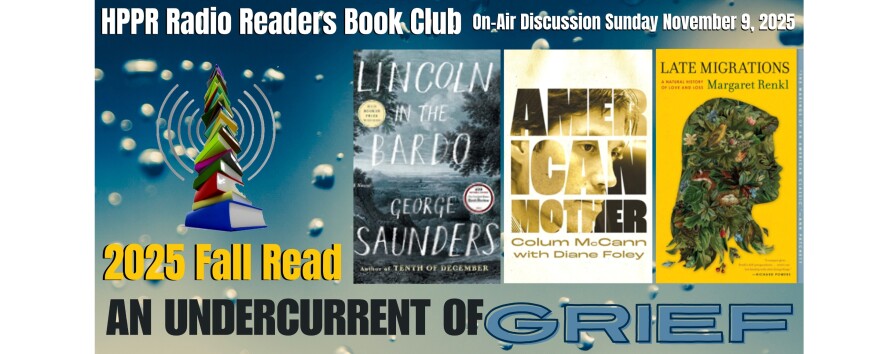This is Leslie VonHolten broadcasting from the High Plains of Kansas with another HPPR Radio Readers Book Byte.
When it comes to The Adventures of Huckleberry Finn, my heart races with anxiety. What a wonderful book. What a heavy, complicated, imperfect book. It was immediately controversial when it was published in 1884, and 137 years later, it is still one of the top stars of the Banned Books list.
But Huck Finn is a fighter, and he has survived. Controversial, and yet one of our foundational American novels.
Even if you haven’t read Huck Finn, you know the story: scrappy and resourceful Huckleberry Finn, friend of Tom Sawyer, flees from his abusive father in a canoe down the Mississippi River. On a small island he encounters Jim, whom he already knows. Jim was enslaved by Huck’s guardians in Missouri and is now himself running to freedom. Together they set off on one of America’s great epic journeys.
We also know, whether we’ve read the book or not, that Huck Finn has that ugly n-word littered throughout. Some readers try to defend the book, and its brutal language, as a product of its time, a nasty colloquialism that Twain would never have used if he’d written the novel today. Which is probably true. But it is a word that has always been used to rob the basic humanity from people and to assert a hierarchy, which is exactly how Huck uses it. Which is exactly how Twain wrote Huck to use it.
The real journey of Huck Finn is an awakening of his beliefs, and his realization that he has lived in a sick society that justified the moral rot of slavery. Traveling together, Huck sees Jim’s humanity. This growing friendship across generations and experiences is why readers like me love Huck Finn. But it’s impossible for me to ignore Twain’s use of Jim as a sentimental appropriation for white redemption. Hence my anxiety.
Jim carries a lot of weight on his shoulders. Should we even be reading Huck Finn now, in 2021?
I do not doubt that Twain was genuinely compassionate toward Jim’s story. It shows. I also believe that Twain did his best to bring rich layers of humanity to a character that 19th-century America demonized. He used the character of Jim to reveal the great hypocrisy of our founding documents—that we are a nation of equals, but with large exceptions.
Fortunately, we are sensitive, questioning readers. We can read Huck Finn if we want to. But then we can also read Toni Morrison and Colson Whitehead and James Baldwin and Ralph Ellison. Since Twain’s day, we have available to us an expansive body of American literature to explore, literature that wrestles with our moral failings and the hard road to redemption. It’s in this diversity of voices that we can better see the merits of Twain’s writing and the place it has within our culture.
So, to me the question is not whether or not we should read Huck Finn—I have, gladly, and to my benefit. But you don’t have to, and that’s fine. The question is, if you do read it, then whose epic journey will you read next?
This is Radio Reader Leslie VonHolten hoping you will join us in reading—or considering—The Adventures of Huckleberry Finn by Mark Twain, and the years of social justice literature written since then. Find more at HPPR.org, or Like us on Facebook.









